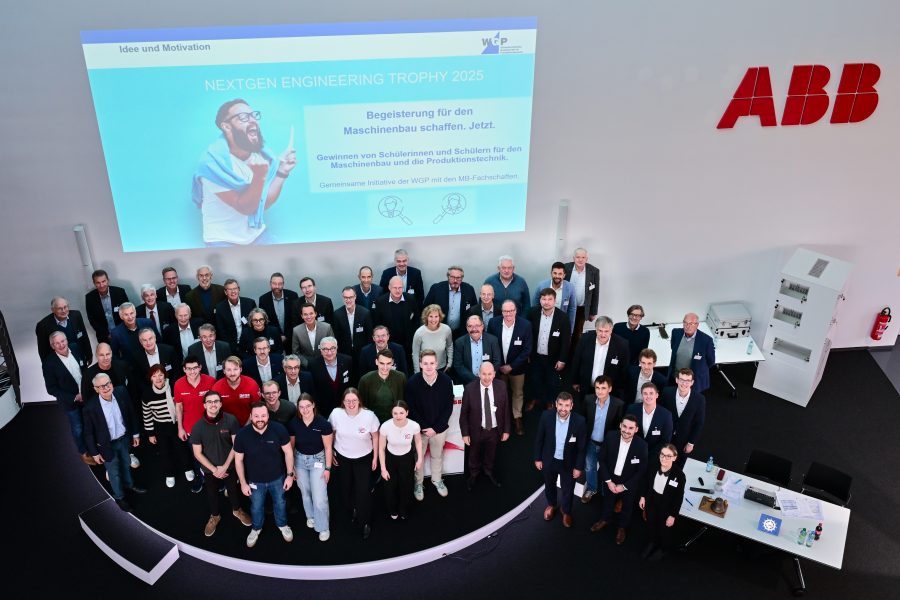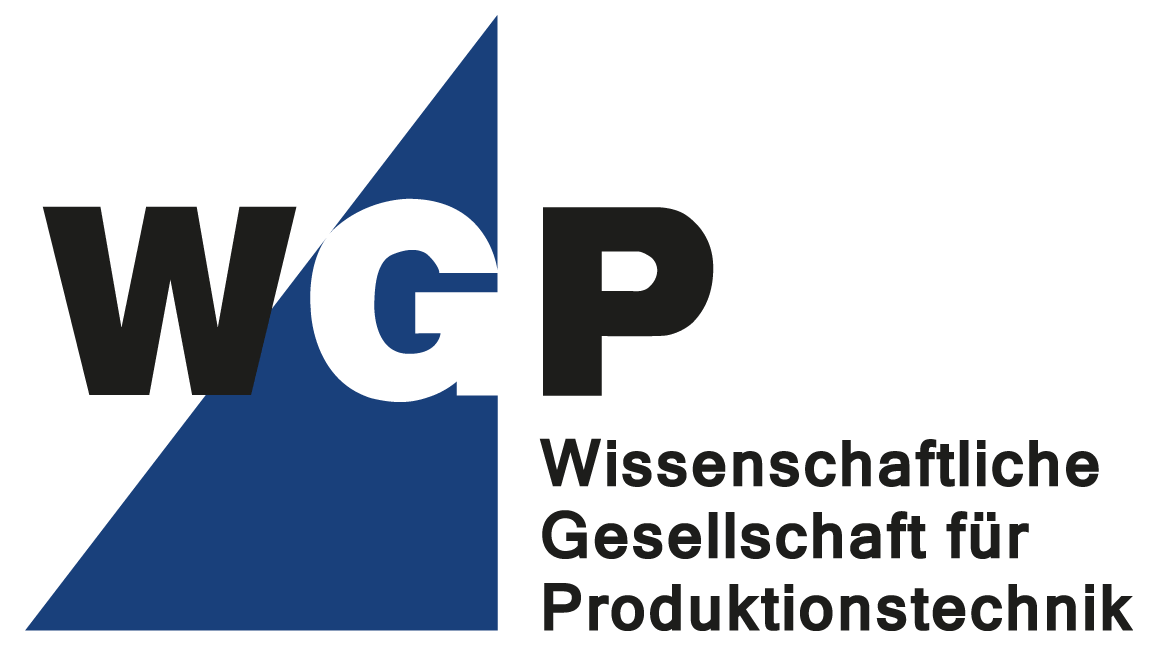
Frankfurt, 12 November 2025 – This year’s autumn conference of the WGP (Scientific Society for Production Technology) was a highlight. For the first time, leading professors of production engineering selected the winners of the NextGen Engineering Trophy Award. The WGP had called on student councils at German universities to submit innovative concepts designed to inspire school pupils to take up engineering, particularly mechanical engineering. ‘The students submitted impressive results and the decision was not an easy one,’ said Prof. Michael Zäh, President of the WGP. ‘We deliberately aimed the competition at students because they are still very close to the world of school leavers. They speak to young people on an equal footing – and that’s the only way we can spark enthusiasm for our fields of expertise.
The problem of a shortage of young talent has been known for some time, which is why the WGP sounded the alarm bells in a press release back in spring 2023: even then, it was clear that the number of first-year students in engineering sciences had been declining steadily over a period of five years. For some university institutes, the decline is reaching dramatic proportions. Some of them are struggling to maintain their status quo. “It is high time to get young people excited about technical professions again. Our industry also urgently needs young talent,‘ explains Michael Zäh. ’After all, the prosperity of our country also depends on our industry, the manufacturing sector.”
The Influencer-Erstis project wins over the jury
Five concepts were selected from all the entries, and their authors were invited to pitch their ideas at the autumn conference held at ABB AG in Friedberg. After seven-minute presentations of each idea, the WGP members chose the two winning teams. One prize went to the concept developed by the Mechanical Engineering/Chemical Engineering Student Council (Mach/CIW) at the Karlsruhe Institute of Technology (KIT).
‘Many school pupils are unaware that mechanical engineering is a degree programme, let alone how versatile it is and what development opportunities this training offers,’ said Lorenz Neumann and Emilio Ruiz Quincke, who presented the project. To inform them about this, there was no better option than to use the channels that 16- to 29-year-olds use for an average of five hours a day: social media. Influencers have a huge impact on young people here – and so the idea of influencer freshers was born. ‘They not only reach potential recruits, but also the friends and family of the students, who then also influence the tech-savvy teenagers.’ Motivated fellow students with an affinity for social media are now being selected and provided with the necessary equipment. As corporate influencers, so to speak, they are to develop short videos to promote their own degree programmes, for which they will also be given access to events, institutes and research facilities as needed. The contributions should authentically reflect everyday student life and present the subject in an accessible way. The influencers will be supervised by the winning team in weekly meetings and status checks.
The recruitment of potential influencer freshers is set to begin in July 2026, once the necessary formalities have been prepared. What makes this project special is that, once all the necessary documents and formalities have been completed, any interested universities will be able to use the concept for themselves in an open-source manner. ‘Influencer freshers can revolutionise the image of mechanical engineering,’ say the delighted winners.
RoboRangler is also involved
The second team to receive an award presented the RoboRangeln project, which was launched by students back in 2023. Participants develop their own robots and then compete against each other in groups. These Fight Nights now take place annually and are broadcast live on the Twitch streaming platform. Michael Ketler and Jonas Schweizer from the Mechanical Engineering/Mechatronics Student Council at the Ostwestfalen-Lippe University of Applied Sciences (TH OWL), who presented the concept, now want to involve secondary school students in the project. Schools in the region have shown great interest in participating in RoboRangeln. This creates a low-threshold entry point into technology for young people. Through crash courses and workshops, they can assemble prefabricated robot kits with the help of students. The prizes for the winning teams of FightNights include laboratory tours at universities and the opportunity to experience higher education institutions live. However, the winners of the NextGen Engineering Trophy are thinking even further ahead: ‘The number of teams in RoboRangeln is not limited, so other colleges and universities can also be invited,’ they say with a view to the future. An exchange with organisers of similar formats, such as in Dortmund or Vienna, is also conceivable. And in the longer term, the course content can be adapted to other age groups and skill levels beyond secondary school. Last but not least, the whole thing can be expanded digitally with the help of online courses and live streams of the competitions. And, of course, the methodology could be transferred to other STEM subjects.
New formats open up new opportunities
The prize for the winning teams is €5,000 each. The award ceremony took place on the evening of the same day during a festive dinner, to which all participants were invited, of course. Incidentally, both groups intend to invest the prize money in the further development of their concepts.
To ensure that the competition has a lasting impact, the two winning groups will report on the progress of their projects at the upcoming WGP Spring Conference in early May.
Further Information:
Engineering scientists ring the alarm bells
WGP launches nationwide young talent campaign
Download:
Image 1: Group photo of all WGP members and competition participants at the ABB AG premises in Friedberg; source: Tobias Kaufmann, RWTH Aachen University
Image 2: Presentation of the NextGen Engineering Trophy Award to the team from the Karlsruhe Institute of Technology (from left to right: Prof. Michael Zäh, Emilio Ruiz Quincke, Lorenz Neumann, Prof. Kirsten Bobzin, Prof. Thomas Bergs), 5 November 2025; source: Tobias Kaufmann, RWTH Aachen University
Image 3: Presentation of the NextGen Engineering Trophy Award to the team from TH Ostwestfalen-Lippe (from left to right: Prof. Michael Zäh, Jonas Schweizer, Michael Ketler, Prof. Kirsten Bobzin, Prof. Thomas Bergs), 5 November 2025; source: Tobias Kaufmann, RWTH Aachen University
